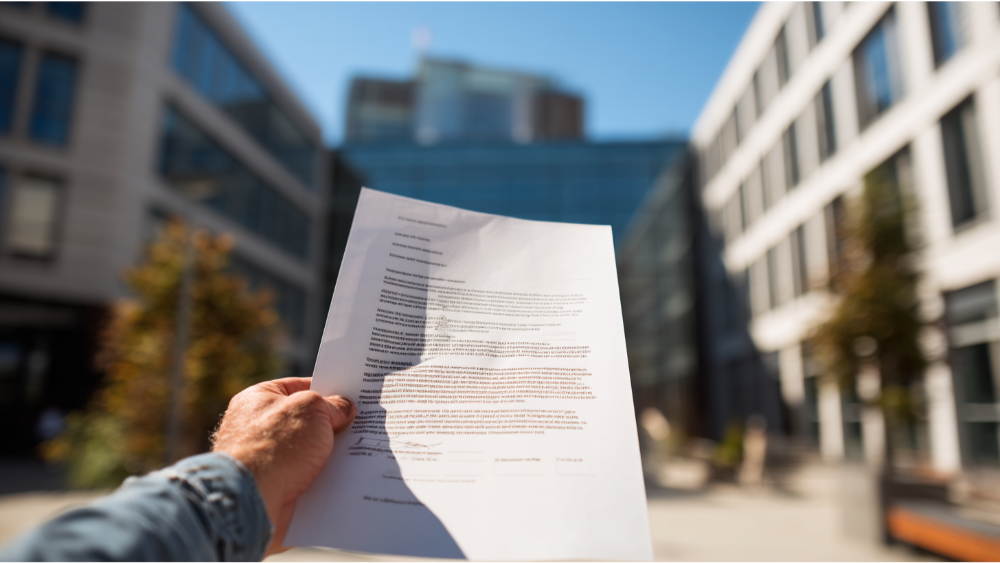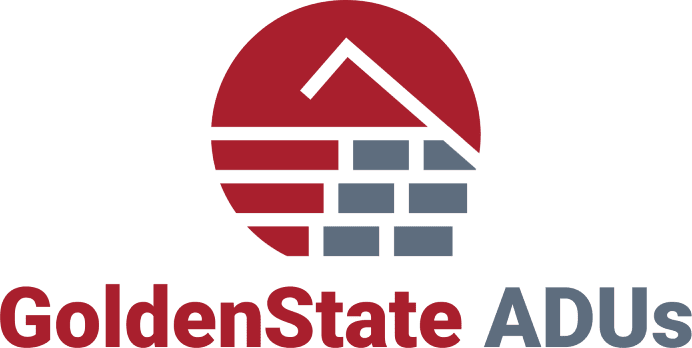Partnered with #1 ADU Builders
Contact Golden State
Drop us a line! We look forward to discussing your next project with you!
Cut the chase! Schedule a face-to-face virtual meeting with us today to dive into your project's next steps.
For our returning clients, experience our streamlined, contact-free project proposal process. Simply fill out our short project questionnaire, and we'll deliver your project proposal within 72 hours.

- Golden State Design & Engineering
- Comment 0
Conditional Use Permits Explained: What Are They and Why You Need One
For any property owner in California looking to change how their land or building is used, understanding conditional use permits is critical. Whether you’re planning to open a small business in a residential neighborhood, operate a private school, or develop commercial real estate that doesn’t match the underlying zoning rules, a conditional use permit may be your best path forward. This guide will walk you through the fundamentals of conditional use permits explained: what are they and why you need one, so you can plan your project with clarity and confidence.
What Is a Conditional Use Permit?
A conditional use permit, often abbreviated as CUP, is a special type of permit issued by a local zoning authority that allows a specific land use not normally permitted under a property’s current zoning ordinance. Unlike permitted uses that are allowed by default in a particular zoning district, a conditional use must meet certain criteria and undergo a public review process before it can be approved. The purpose of a conditional use permit is to allow flexibility in land development while still protecting the health, safety, and general welfare of the surrounding community.
Conditional use permits are used when a proposed use may be compatible with the neighborhood but requires additional scrutiny to evaluate its impact. For example, operating a childcare center in a residential neighborhood or establishing a small-scale manufacturing shop in a commercial zone typically requires conditional approval under local zoning ordinances.
Why Conditional Use Permits Exist

Most cities and counties regulate land through zoning laws that categorize areas into distinct zoning districts, such as residential, commercial, industrial, and mixed-use. Each district has a list of uses that are either allowed by right, conditionally allowed, or prohibited. Conditional use permits exist to allow certain uses that are not typically permitted in a particular zone, but which may still be acceptable if specific conditions are met.
Conditional uses are specifically listed in the zoning ordinance as requiring additional review. These uses may generate more traffic, noise, or visual impact than the standard permitted uses, which is why the local zoning authority, such as a planning commission or zoning board, reviews them on a case-by-case basis. Conditional use permits provide a mechanism for granting approval while allowing for reasonable conditions that protect public health and neighboring properties.
When You Need a Conditional Use Permit
You need a conditional use permit when your proposed use is not permitted by right in your zoning district but is listed as a conditional use in the local zoning ordinance. This often includes uses such as:
- Religious facilities in residential zones
- Daycares and preschools in neighborhoods
- Nightclubs, bars, or entertainment venues in commercial areas
- Car washes, auto repair, or gas stations
- Mixed-use developments or live-work spaces
- Agricultural uses in suburban areas
In each case, the conditional use permit application must demonstrate that the proposed use is compatible with the surrounding area, complies with the city’s general plan or comprehensive plan, and will not negatively affect public services or general welfare.
How the Conditional Use Permit Process Works

Step 1: Pre-Application and Planning
Before submitting a conditional use permit application, it’s advisable to meet with the zoning administrator or city planning staff. Many municipalities offer a pre-application meeting where you can present your proposed use and receive feedback on zoning compatibility, submittal requirements, and the review process.
At Golden State Design & Engineering, we assist property owners by reviewing local zoning laws, evaluating the feasibility of the proposed conditional use, and preparing materials that align with city requirements.
Step 2: Submitting the Conditional Use Permit Application
The conditional use permit CUP application typically includes the following:
- A detailed site plan showing the layout of the property, access points, parking, landscaping, and setbacks
- A narrative describing the proposed use, including hours of operation, number of employees, and any impacts
- Environmental documentation if required under CEQA
- Application fees set by the particular city or county
- Supporting studies such as traffic or noise impact reports
It is essential that the permit application clearly explains how the proposed conditional use aligns with current zoning ordinances and the city’s general plan. The more thorough and consistent the application, the smoother the review process will be.
Step 3: Public Review and Hearings
Once the CUP application is accepted as complete, the local zoning authority will schedule a public hearing. Notices are sent to neighboring properties, allowing the public to review the application and provide feedback.
During the public hearing, city officials or planning commission members will consider the impact of the proposed use on the surrounding area. They may ask questions about the site plan, parking, signage, traffic, or hours of operation. The applicant may also need to address concerns raised by neighboring property owners.
Public hearings play a vital role in ensuring that conditional uses align with zoning regulations and serve the community’s best interest. GSDE helps our clients prepare for these meetings with clear presentations, updated site plans, and responses to potential objections.
Step 4: Approval and Conditions
If the planning commission approves the conditional use permit, it will attach specific conditions to the permit. These may include:
- Operating hours restrictions
- Noise and lighting controls
- Required landscaping or buffer zones
- Off-street parking minimums
- Limitations on signage or outdoor activities
These conditions are legally binding and must be followed as part of the approved permit. Some cities delegate this authority to a zoning administrator, while others require approval by the zoning board or city council.
Step 5: Appeals and Final Decision
If the permit is denied or the applicant disagrees with the conditions, they can appeal the final decision to a higher body such as the city council. Appeals must be filed within a specified period and include justification for the proposed changes.
Our team at GSDE guides property owners through the entire approval process, including appeals, if necessary. We also support the engineering and permitting required to satisfy post-approval conditions.
How Long Does It Take to Get a Conditional Use Permit?

The timeframe to obtain a CUP varies by jurisdiction but generally ranges from 6 to 20 weeks. Factors that influence the schedule include:
- Complexity of the proposed use
- Whether the project triggers CEQA review
- Public opposition or controversy
- Incomplete or unclear permit application materials
In our experience, a well-prepared conditional use permit application with a clear site plan and consistent documentation can significantly reduce delays.
CUP vs. Zoning Variance vs. Rezoning
Understanding the difference between a conditional use permit, zoning variance, and rezoning is essential:
- Conditional Use Permit: Grants permission for a use that is listed as conditional in a particular zoning district, subject to public hearing and conditions
- Zoning Variance: Provides relief from zoning regulations such as building height, setback, or lot coverage due to property-specific hardship
- Rezoning: Changes the zoning designation of a parcel entirely, requiring legislative approval
A CUP does not change the zoning but allows a specific use within the rules of the current zoning district. It is often preferred when the proposed use is consistent with the comprehensive plan but not permitted outright.
Key Terms to Know
- Zoning Authority: The local agency, such as a city or county planning department, responsible for interpreting and enforcing zoning laws
- Zoning Ordinance: The local regulations that define permitted and conditional uses, building standards, and zoning districts
- Permit Application: The formal request submitted by a property owner to obtain permission for a proposed land use or development
- Conditional Use: A land use not permitted by right but allowed with conditions through a CUP
- Public Hearing: A formal meeting where neighbors and officials can review and comment on a CUP application
How CUPs Impact Commercial Real Estate Development

For commercial real estate developers, CUPs are critical tools for creating projects that meet market demand while complying with local zoning laws. From food courts and live-work spaces to hotels and event venues, many innovative developments require conditional approval due to their size, intensity, or proximity to residential zones.
GSDE provides engineering, permitting, and planning support to help developers manage the CUP approval process and align their projects with the local zoning ordinance and general plan.
Frequently Asked Questions About Conditional Use Permits
Can any use be approved with a CUP?
No. Only uses listed as conditional in the zoning ordinance for a particular zone can be considered for CUP approval. Uses not listed at all require rezoning.
Does a CUP guarantee I can build?
No. A CUP is a land use entitlement, not a building permit. You must still submit plans for construction and meet all applicable codes.
How long does a CUP last?
CUPs typically run with the land, meaning they stay in effect even if the property changes ownership. However, some cities may limit their duration or require renewal if the use lapses.
Can CUPs be revoked?
Yes. If the property owner fails to meet the conditions or misrepresents the proposed use, the zoning authority can initiate revocation proceedings.
What happens if neighbors object?
Neighbor objections are considered during the public hearing. While they do not automatically block approval, they can influence conditions or lead to denial if significant conflicts arise.
Final Thoughts
Conditional use permits give property owners and developers the flexibility to pursue land uses that fall outside standard zoning classifications. They provide a controlled process for approving proposed uses that, while not typical, can be compatible with surrounding properties if properly conditioned. From community-serving facilities to mixed-use commercial real estate, CUPs play a vital role in helping cities grow in thoughtful and context-sensitive ways.
At Golden State Design & Engineering, we specialize in guiding clients through the full CUP process—from site plan development and conditional use permit applications to public hearing preparation and post-approval compliance. Whether you’re applying for a conditional use in a residential neighborhood or looking to adapt an existing commercial property, our team is here to help you navigate every step with professionalism and local expertise.
Ready to apply for a conditional use permit in your city? Contact GSDE today for a consultation and let us help you bring your project to life.
#NAICS’s:
- 541310 Architectural Services &
- 541330 Engineering Services
DUNS NO:
- 119132267
#SIC’s
- 8712 Architectural Services &
- 8711 Engineering Services
Cage #
- 9R4L5
#UNSPSC’s:
- 81101500, 81101502, 81101505, 81101508, 81101526, 81101533, 81101522

